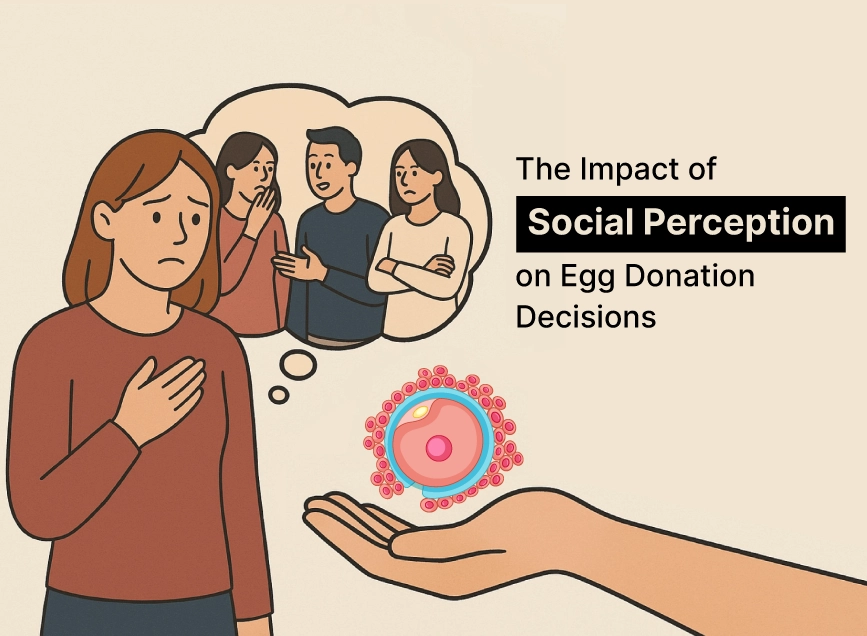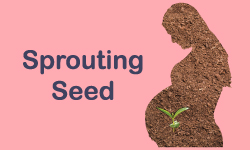
-
Posted By admin
-
-
Comments 0
Egg donation is a powerful and life-changing process that brings hope to countless individuals and couples struggling with infertility. However, despite medical advancements and increased accessibility to fertility treatments like egg donation in Mumbai, the topic is often met with social silence, stigma, and a mix of emotional responses. The impact of social perception significantly influences the choices made by both donors and recipients, shaping the entire journey in ways that go far beyond clinical procedures.
The Power of Social Talk
Social talk or the way society, families, and communities converse about sensitive topics like fertility plays a crucial role in normalizing or stigmatizing certain medical treatments. When it comes to egg donation, this talk often leans toward secrecy, speculation, or misinformation. While some individuals may view it as a noble and selfless act, others might question its ethical implications, family dynamics or long-term emotional impact.
These differing opinions, when voiced within families or social circles, can deeply affect how potential female egg donors or recipients feel about their decision. Many hesitate to pursue egg donation not because of personal doubts, but due to the fear of judgment from relatives, friends or even religious communities.
Misunderstandings and Misinformation
One of the most common reasons egg donation is met with discomfort in society is the sheer lack of accurate information. People often confuse it with surrogacy, fail to understand the medical safeguards involved, or see it as an unnatural way of having a child. These misconceptions lead to fear-based narratives that discourage open dialogue.
For instance, potential female egg donors in Mumbai may worry that others will view them as giving away a part of themselves, while recipients might be afraid of being seen as less than for needing help conceiving. This emotional baggage, largely created by social talk, creates unnecessary pressure during an already sensitive time.
Cultural and Religious Influence
Cultural and religious values also shape how egg donation is perceived and discussed. In many traditional societies, having biological children is considered essential, and any deviation from natural conception is viewed with suspicion or pity. This cultural lens can make it difficult for couples to disclose their use of donor eggs or for someone to become an egg donor.
Some religious communities may view egg donation as interfering with natural or divine processes, while others might support it as an act of compassion. The lack of a unified narrative means individuals often find themselves navigating a complex moral and cultural maze one heavily influenced by the impact of social perception.
The Silence Around Egg Donation
Despite being a source of hope and healing, egg donation remains a topic many prefer to keep private. While privacy is a personal choice, the widespread silence surrounding it feeds into the stigma. When no one talks about it openly, it sends a message that it’s something to be hidden or ashamed of.
This silence can be particularly damaging for recipients who may feel isolated in their journey, and for donors who may not receive the emotional support they need. Breaking this silence requires a collective effort to speak about egg donation in Mumbai with empathy, openness and education.
Emotional Impact on Decision-Making
The emotional toll of societal judgment can be significant. Potential donors might experience internal conflict if their family or peers express disapproval. Recipients, especially women, may struggle with the idea of not being the genetic mother, made worse by social conversations that question the legitimacy of their parenthood.
This emotional weight can lead to hesitation, secrecy and even withdrawal from the process. Many individuals change their minds not because they are uncertain about their decision, Because they fear social consequences, questions, gossip or alienation. Here again, the impact of social perception is deeply felt.
How Can We Address These Social Perception Challenges?
Thankfully, there are steps we can take to reduce the negative impact of social perception around egg donation:
Education and Awareness Campaigns
The more people know, the less they judge. Fertility clinics, especially those offering egg donation in Mumbai, can collaborate with influencers, doctors and educators to promote accurate information through blogs, webinars and community sessions.
Supportive Counseling for Donors and Recipients
Providing access to professional counselors can help individuals process social pressure and make empowered decisions. Peer networks and group discussions also offer a sense of belonging.
Real Stories - Real Voices
Encouraging people to share their experiences with egg donation can normalize the process and dispel harmful myths.
Involving Families in the Conversation
Sometimes, open communication supported by professionals can help families understand the emotional and physical aspects of egg donation, making them more supportive.
Inclusive Language and Media Representation
Media plays a vital role. Accurate, empathetic portrayals of donors and recipients in popular culture can reshape societal attitudes and reduce the impact of social perception.
To Conclude
Egg donation is not just a medical decision, it’s a deeply personal journey shaped by how society views and talks about it. The impact of social perception can either be a barrier or a bridge. By encouraging honest conversations, promoting education, and showing empathy, we can create a culture where choosing to become or seek help from an egg donor in Mumbai is met with respect, not resistance.







